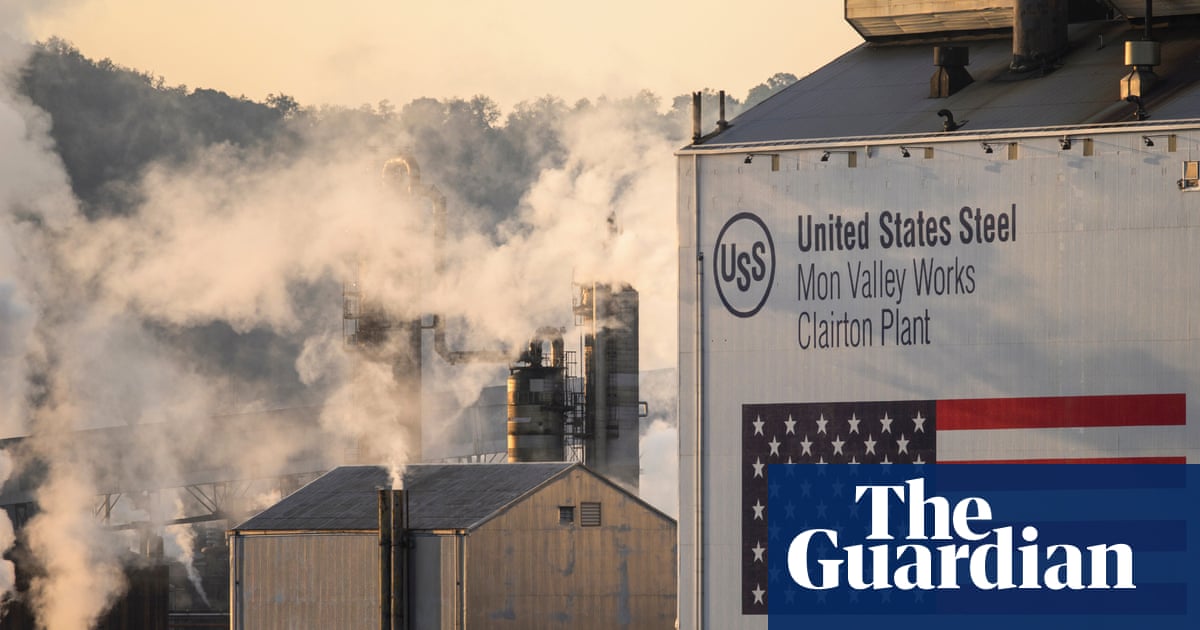Trump Backs Steel Partnership: A Shift in Stance
Donald Trump has recently shown his support for a "partnership" between US Steel and Nippon Steel, despite his previously strong opposition to a $14.9 billion acquisition by the Japanese company. This new development comes on the heels of Trump’s evolving perspective on foreign investment, particularly in industries deemed critical to national security.
The Announcement and Its Implications
On social media, Trump declared a significant partnership initiative between US Steel and Nippon Steel, noting that US Steel would maintain its headquarters in Pittsburgh. The announcement came alongside Trump’s plans for a rally in the state next week, a move aimed at rallying local support for the initiative.
The partnership is stated to create approximately 70,000 jobs and inject $14 billion into the U.S. economy. Trump emphasized that the bulk of this investment would occur in the next 14 months, suggesting a proactive approach to revitalizing the steel industry and boosting local economies.
Stock Market Reaction
The news sent US Steel’s stock soaring by 21% as investors reacted positively, interpreting Trump’s statements as a green light for Nippon Steel’s acquisition bid. The shares climbed to $54, approaching Nippon Steel’s offer of $55 per share from late 2023. This surge reflects a renewed confidence among investors who had been awaiting clarity on the deal for over a year.
The Political Landscape
The backdrop to this partnership is complex. Trump’s predecessor, Joe Biden, had blocked Nippon Steel’s bid due to national security concerns late in his administration. The situation had since remained fluid, with Trump expressing a desire to keep US Steel domestically operated, notably stating, "We don’t want to see it go to Japan." This shift highlights the delicate balance between economic growth and national interests.
Reactions from Stakeholders
Nippon Steel wholeheartedly welcomed Trump’s newfound support for the partnership, signaling a shift toward collaboration rather than outright acquisition. In response to the announcement, the White House did not provide immediate comments, leaving the door open for further discussions.
The implications of this partnership extend beyond economics; Pennsylvania Senator Dave McCormick characterized the deal as a “huge victory for America and the US Steel Corporation,” suggesting it would safeguard over 11,000 jobs while potentially creating an additional 14,000.
Union Perspectives
However, not everyone is on board with the idea of foreign investment in US Steel. The United Steelworkers union has been vocally critical, arguing that Nippon’s professed commitment to job creation is merely “flashy promises.” They assert that Nippon’s intentions are rooted in a desire to undermine domestic steel production from within, raising questions about the long-term consequences of such partnerships.
Evolving Views on Foreign Investment
Trump’s stance on Nippon Steel’s acquisition has undergone significant transformation. Back in December, he firmly opposed the deal, warning potential investors to proceed with caution. However, his recent comments suggest a more conciliatory approach, demonstrating a willingness to accept foreign capital as long as it benefits American workers and keeps jobs on home soil.
Investor Sentiment and Future Expectations
Investors have reacted with relief to the newfound support from Trump, with many expressing optimism about the potential for renewed investments. Prominent hedge funds and investors have now shifted their perspectives, believing that Trump’s backing significantly alters the landscape for US Steel.
Comments from investors indicate a sense of empowerment, with one insider noting, “We understood Donald Trump’s psyche and we played it to our advantage here.” The ripple effects of this announcement may play a pivotal role in shaping future negotiations and the overall direction of the steel industry.
Long-Term Vision
As discussions around this partnership unfold, both Trump and Nippon Steel appear to be aligned on ensuring that steelmaking remains a vital part of Pittsburgh’s industrial landscape. This partnership could herald a new era for US Steel, potentially ensuring its longevity for generations to come.
In summary, as this situation develops, it continues to highlight the interplay between corporate interests, job security, and political maneuvering, keeping the spotlight firmly on the future of American steel.


